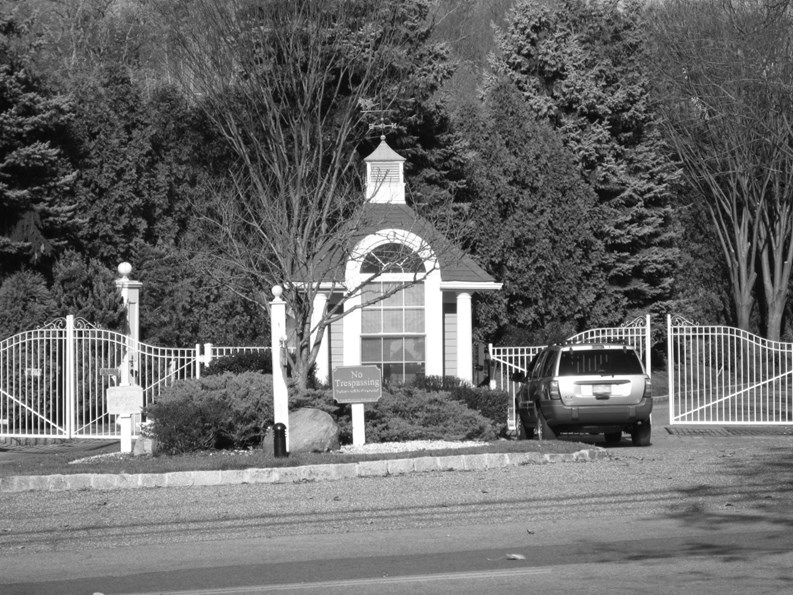For New York residents, every neighborhood and every borough and every county could well be another state entirely. Whether it’s a few blocks or a few miles, every area has its own personality, its own perks and its own downside. When it comes to question of security, it’s no different. The Manhattanite living in the 20-story co-op complex is going to have a different set of needs than someone living in a detached townhouse on Staten Island or a gated community in Queens. For managing agents as well as residents, these differences all come into play when trying to determine the best, most effective way to keep house and home safe and sound.
Location, Location, Location
As with all things real estate, location can play a big role in security, regardless of whether the community in question is a co-op or condo. For more suburban properties, “You want to look at what crime trends or patterns are in the area,” says Richard Kessinger of KC Security Solutions LLC in Saratoga Springs. “It’s the same thing we would do in an urban setting, though sometimes urban settings are easier” in terms of tracking these things.
The greatest asset in preventing crime often comes down to spotting trouble before it starts, says Matt Peskin, executive director of the National Association of Town Watch (NATW), based in Wynnewood, Pennsylvania. The compact nature of urban neighborhoods can help a lot in this regard. “In the city, it’s easier for residents to notice changing populations or changes in daytime versus nighttime activity,” says Peskin. “What’s normal in a neighborhood versus something that might be out of place is easier to spot [when things aren't so spread-out.]”
For residents living in townhouses or smaller complex units that are spread out over greater areas, it can be difficult to establish an understanding of the neighborhood routine and therefore know when something might be wrong.
On the other hand, it’s often the suburban residents who are more concerned with nipping nefarious activity in the bud. According to Peskin, “In the city, people tend to be more knee-jerk in their responses. There will be an incident of vandalism, and then everyone wants to react. But then when the story dies down, people lose interest.”
In the suburbs, though, interest in things such as neighborhood watches tend to be more consistent on a year-round basis. “I’m not sure why,” Peskin says. “Perhaps they have more time? Are willing to go to more meetings?” Whatever the reason, it seems to be a trend that holds true.
People vs. Gadgets
One of the many differences between security in the city and in the suburbs revolves around the use of manpower. A Manhattan co-op complex is more likely to rely on a doorman to keep the building safe, doing things like making sure doors are properly locked, monitoring common areas, and verifying that delivery people actually are who they say they are.
In a more suburban setting, a gated community might rely strictly on that guard gate or entry key to keep criminals at bay. “Or they might want a motor patrol,” says Stephen Edmondson, president and CEO of Security Enforcement in Rockville Centre. And sometimes those motor patrols can be key. “You’ll see more people trying to get into complexes over a fence than in a high rise,” Edmondson says.
Other complexes might go in for more four-legged protection. “A lot [of associations] are asking for K-9 patrols,” Edmonson says. “But the insurance for that can be very expensive, and a dog handler is obviously needed,” so that kind of service may not be within the budget of the average garden co-op.
And that’s where gadgetry comes into the picture. In more spread-out communities, technology can help cover a large expanse of buildings and units. Edmondson suggests surveillance cameras to keep watch on places that might not see a lot of activity from residents or management such as laundry rooms, storage units, parking lots and other often dark, often quiet spaces. Lighting, too, can be a silent partner in crime prevention, eliminating hiding places and dark doorways, making them off-limits to the criminal element. “Places without proper lighting can make a good target for burglars,” Edmondson says.
Knowing exactly how much security a suburban community should have and where those assets should be allocated can be difficult for a non-professional. That’s why most security service firms offer a security analysis of buildings or developments to help boards and managers decide how best to address their community's needs.
“We’ll look at past incidents in the community, and look at neighborhood patterns,” Kessinger says. “We’ll look at other communities and buildings in the area and see what kind of security there is.” They’ll also examine any closed-circuit TV or intercom systems, the architecture of the complex, any existing fencing, and what kind of security procedures are already in place.
In many cases, private security companies collaborate with local law enforcement agencies, many of which themselves offer tips on forming neighborhood watch programs or training for residents on common sense things they should do to keep themselves and their neighbors safe. “Depending on the location, many police departments have improved and become more proactive in working with building management,” Kessinger says.
Making the Effort
As much as some communities worry about watch programs or other preventative measures, an air of complacent trust can still permeate even the quietest, most tree-lined suburban streets. That’s why it’s important for management to talk with their residents about those common sense steps they need to take and remember each day.
For suburban co-op or condo complexes with four or six unit buildings, people still need to remember to be cautious, and stay aware of their surroundings. “You want to remind them not to buzz people in who aren’t there to see them,” Kessinger says. “You want to make sure the front door is locked when it closes behind you.” And in gated communities, drivers need to make sure those gates close behind them.
Even in communities with a guard or patrol system, it’s important to not simply rely on those contractors, Kessinger says. “You should get a monthly copy of their report and look it over,” he adds. “A lot of times, people just leave everything to the guards, but someone could be missing something. You need to check.”
The little things management decides to do also can have an impact. From time to time, for example, newspaper delivery people have been the culprits in thefts or break-ins, or lobby keys get handed from employee to employee with no real consideration, much less thorough background or criminal checks. Management, however, can thwart that type of action by doing something as simple as asking that all newspapers be left in the management office to then be delivered by staff or picked up by residents. They can also make certain that background checks are run on prospective building staff members before they're given keys and access to private areas.
In other instances, not paying attention to details can lead to larger issues. “Co-ops might not be doing background checks on employees or contractors,” Kessinger says. “Or they might have given free rein on subleasing.” All of which can spell a supreme lack of knowledge about who exactly has access to what parts of the building or community.
Looking out for all the details can be even more important in complexes that cater to older residents. “Seniors could certainly be more vulnerable,” Kessinger says. “You want to check on what they have in place (in terms of individual building security) especially with lighting and locks.” Those systems should be easy to understand and manage for older individuals, too, especially when it comes to being able to properly manipulate a lock and ensure that it is secured.
Working Together
More than anything, though, good security boils down to keeping one’s eyes open and not being afraid to speak up. “If you see someone out of place, call management,” Kessinger says. “People should have a sense of community, and people should be involved. It’s very important to know your neighbors and know who’s around you. A lot of times, people live in their little cocoons.” But in order to have a safe neighborhood and safe complex, they have to break out of that isolation and get involved.
Peskin suggests inviting local law enforcement officials to come into communities and talk with residents—and, he says, it should be a real conversation, not just a lecture. “The best thing is when you can arrange parlor meetings in someone’s living room or the local church,” Peskin says. “Sit down with your local watch organizers and officers and members of the community. Have a give-and-take roundtable. Let residents vent but have an exchange, have a conversation.”
Talking out concerns and taking action before problems start can be the most effective tools in reducing and preventing crime. After all, no matter if it’s a 40-story building or a 40-unit complex, living in a co-op or condo is about living in a community and every community is stronger when neighbors look out for neighbors.
Liz Lent is a freelance writer, teacher and a frequent contributor to The Cooperator.







Comments
Leave a Comment